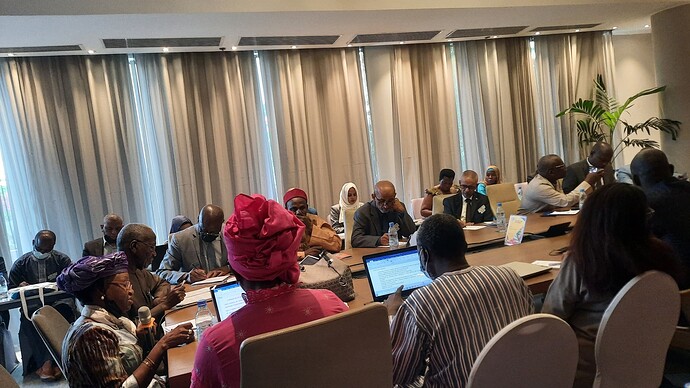Authors:
Igor Lesko, Open Education Global and PhD candidate at the Open Universiteit, the Netherlands. Email: igorlesko@oeglobal.org;
Prof. Herman van den Bosch, Faculty of Management, Open Universiteit, the Netherlands. Email: herman.vandenbosch@ou.nl;
Prof. Paquita Perez, Faculty of Science, Open Universiteit, the Netherlands. Email: Paquita.Perez@ou.nl
This presentation is part of a PhD research study exploring how International Organisations (IOs) have influenced the development of governmental Open Educational Resources (OER) policies. We present the theoretical and conceptual perspectives on IOs. The following research question guides this study: How did selected IOs influence the development of governmental OER policies in selected countries from 2002 to 2019? A combination of methodological approaches have been applied, including a literature review and semi-structured interviews.
On the basis of the literature review, we describe the rationale for the growth of and typology of governmental OER policies worldwide as evidenced in the output documents from different research initiatives conducted by IOs. The growth in the adoption of governmental OER policies since 2007 to date indicates a prominent and sustained interest in OER policy interventions at a governmental level. As of January 2021, the Open Education Policy Registry (OER World Map) lists examples of 311 Open Education/OER policies, of which 230 are categorised as national, state or international OER and Open Education policies.
Following the overview of governmental OER policies worldwide, we pay particular attention to describing how different IOs have been advocating for and supporting the development of governmental OER policies and setting international OER policy agendas. IOs possess several instruments in the pursuit of their policy objectives. These include “discursive dissemination, standard setting, financial means, coordinative functions, and technical assistance” (Jakobi, 2009, p.4). Specifically, in the context of governmental education policies, IOs can assert their influence through policy instruments such as declarations, recommendations, provision of funding and policy advice or information sharing strategies (Shahjahan, 2012).
UNESCO is firmly established as a leader in the OER movement through its efforts since 2002. Examples of activities by other IOs include IGOs such as the Organisation for Economic Cooperation and Development (OECD), the Commonwealth of Learning (COL), and the European Commission (EC), INGOs such as the Creative Commons and Open Education Global as well as Foundations such as the Hewlett Foundation, Open Society Foundations and Shuttleworth Foundation. The reviews demonstrate that different actors comprise the governmental OER policy landscape. This policy landscape includes governments adopting OER policies. The landscape also has numerous IOs and foundations that collectively advocate for and support the development of institutional and governmental OER policies and set international OER policy agendas.
Subsequently, we focus on clarifying concepts such as IOs, policy instruments, governmental policy, OER and how the roles of IOs are conceptualised concerning their mechanisms of influence on the development of governmental policies. Furthermore, we provide working definitions of concepts such as IOs, OER policy instruments and governmental (OER) policy, and an overview of prevalent theoretical perspectives to study the mechanisms of influence by IOs on governmental policies. Rationale will be proposed for positioning this research within the literature that examines the effects of globalisation on educational public policy. In this context, numerous authors have argued that public policy making is no longer confined within national boundaries. Increasingly, national policy makers are interconnected with policy actors beyond nation-states such as IOs and other policy networks (Rizvi and Lingard, 2010; Henry et al., 2001). This phenomenon is described as an emergent global education policy field or community (Lingard et al., 2005; Rizvi and Lingard, 2010). The presentation contributes to the theoretical and conceptual debates in the literature that address and examine the effects of globalisation vis-à-vis IOs on governmental educational policies.
This PhD research is registered at the Open Universiteit, the Netherlands (Europe), carried out under the Global OER Graduate Network (GO-GN), and supported by the William and Flora Hewlett Foundation.
References:
Henry, M., Lingard, B., Rizvi, F., & Taylor, S. (2001.) The OECD, Globalization and Education Policy. Pergamon Press.
Jakobi, A. P. (2009). International organisations and world society: studying global policy development in public policy (TranState working papers, No. 81). Making sure you're not a bot!
Lingard, B., Rawolle, S., & Taylor, S. (2005). Globalising policy sociology in education: working with Bourdieu. Journal of Education Policy 20 (6), 759-77. https://doi.org/10.1080/02680930500238945
Rizvi, F., & Lingard, B. (2010). Globalising Education Policy. Routledge.
Shahjahan, R. A. (2012). The roles of international organisations (IOs) in globalising higher education policy. In J. Smart & M. Paulsen (Eds.), Higher Education: Handbook of Theory and Research (pp. 369–407). Springer. https://doi.org/10.1007/978-94-007-2950-6_8
Info
![]() Presented by:: Igor Lesko
Presented by:: Igor Lesko
![]() Conference Track: Special session
Conference Track: Special session
![]() Track Date/Time: 2022-05-23T14:00:00Z (your local time)
Track Date/Time: 2022-05-23T14:00:00Z (your local time)
![]() Language: English
Language: English
![]() Pretalx link: The influence of International Organisations on Governmental Open Educational Resources Policies. :: Open Education Global 2022 :: pretalx
Pretalx link: The influence of International Organisations on Governmental Open Educational Resources Policies. :: Open Education Global 2022 :: pretalx
Participate
Authors are asked to reply below with links to presentation materials, videos, and other relevant resources, as well as posting prompts for discussion.
Conference participants can reply below with questions, comments for the presenters or to share related resources. And please add anything relevant from this session as an annotation to a specific part of the UNESCO OER Recommendation.
